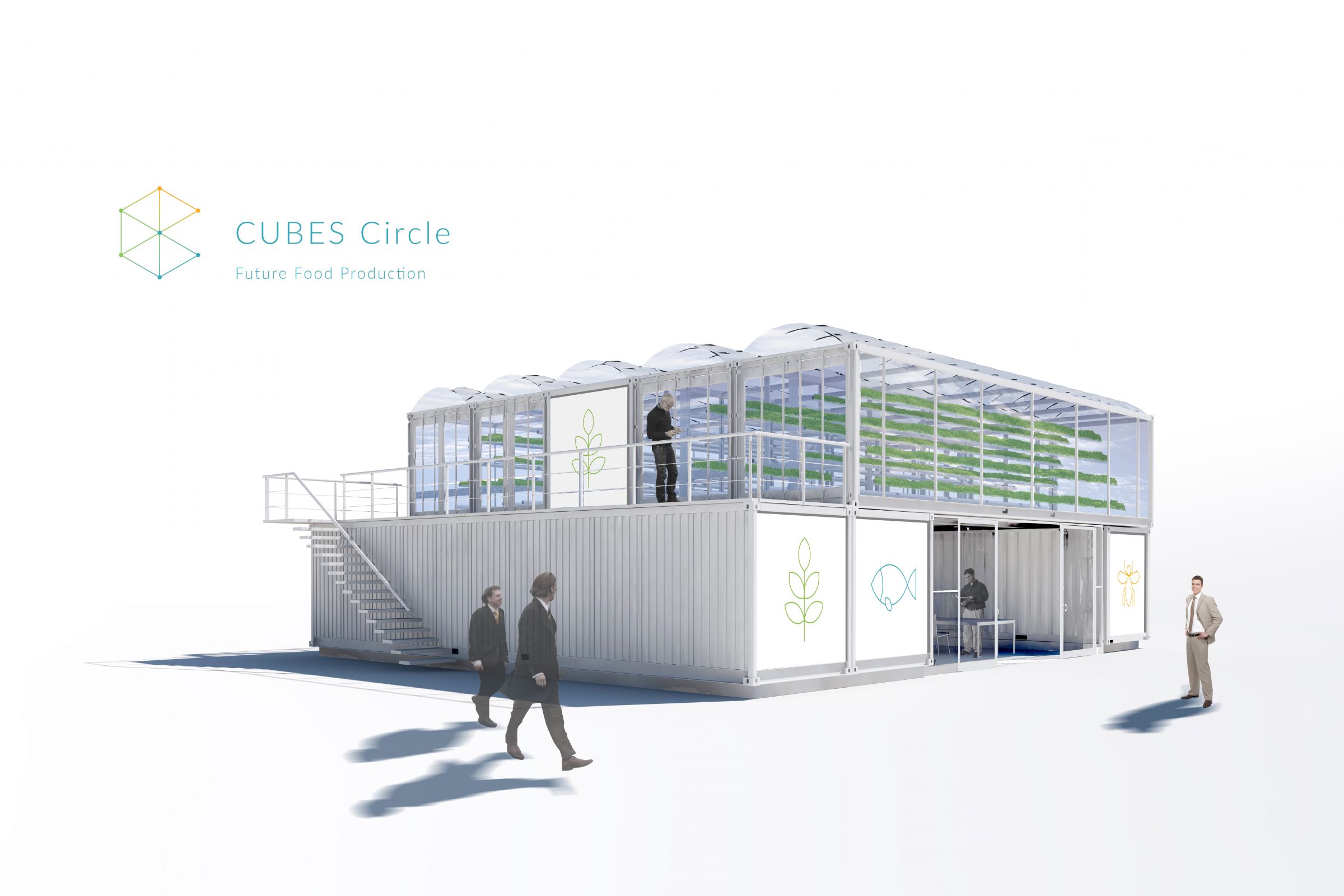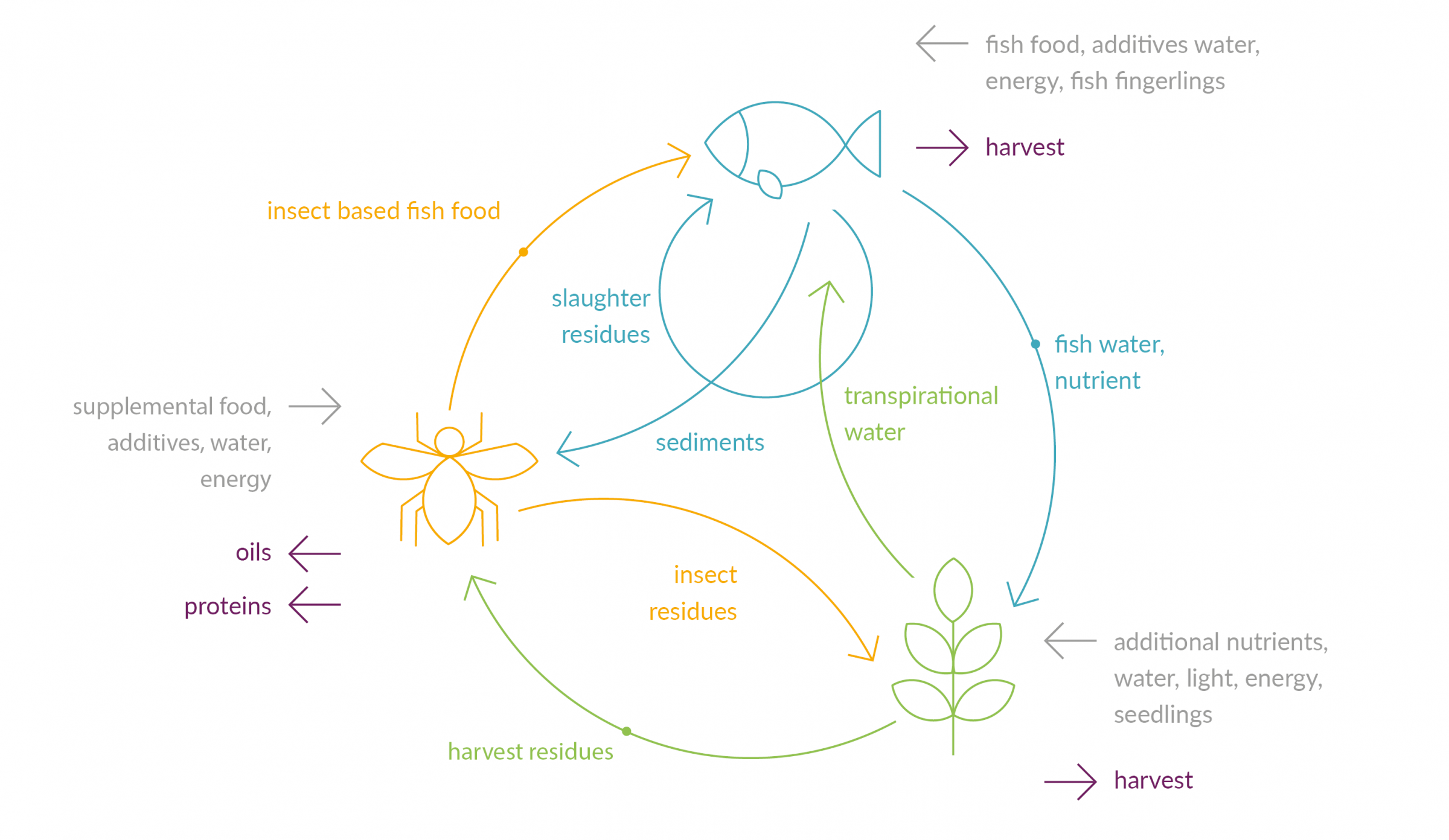The challenge faced by agrosystems
Alongside global population growth and climate change, the increasing densification of urban space is one of the key challenges faced by agrosystems. The space and infrastructure boundaries between urban centres and peri-urban areas are increasingly becoming blurred by the mega-trend of urbanisation. Given the simultaneous scarcity of available agricultural land, today’s agrosystems will no longer be able to feed the growing population increasingly living in metropolitan regions. New approaches to food production are therefore required.
The vision
The CUBES Circle (Closed Urban modular Energy and Resource-efficient Agricultural Systems) project pursues a vision of the intelligent networking of various agricultural production systems in closed energy and substance cycles. Production units of plants, insects and fish that communicate with each other are to be cultivated in the CUBES, utilising the waste materials of the respective other production processes. Here the basic principles of passing on substances correspond to those of natural systems across several levels from producers to secondary consumers.
Thanks to the ISO-standardised and stackable basic shape as well as the mobile nature of the CUBES, they are extremely versatile in application – from urban to suburban space to desert-like sites. Integrating the principles of various closed cultivation processes into a new process chain is the goal. It is of crucial importance for the project that the individual links of the chain have open interfaces for intelligent inter-networking and control. This permits the realisation of synergies, successful integration into the urban environment and the implementation of resource-optimised production with almost no waste. The CUBES Circle is also resilient in regard to changing ecological and socio-economic conditions.
More information about the project and the consortium is available here.
Coordinator
Prof. Dr. Dr. Christian Ulrichs
Humboldt University of Berlin
Faculty of Life Sciences
Albrecht Daniel Thaer-Institute of Agricultural and Horticultural Sciences
Division Urban Plant Ecophysiology
Lentzeallee 55-57
14195 Berlin
Tel.: +49 30 2093 46420
Fax: +49 30 2093 46440
E-Mail: mail@cubescircle.de
Follow us on:
Instagram
ResearchGate
LinkedIn
Project partners
Humboldt University of Berlin
Prof. Dr. Dr. Christian Ulrichs
Prof. Dr. Uwe Schmidt
Prof. Dr. Christoph-Martin Geilfus
Prof. Dr. Bernhard Grimm
Prof. Dr. Linda Onnasch
Prof. Dr. Peter Feindt
Chemnitz University of Technology
Prof. Dr.-Ing. habil Stefan Streif
Technische Universität Braunschweig
Prof. Dr.-Ing. Christoph Hermann
Weihenstephan-Triesdorf University of Applied Science
Prof. Dr. Heike Mempel
The Julius Kühn Institute
Prof. Dr. Stefan Kühne
The Leibniz-Institue of Freshwater Ecology and Inland Fisheries
Prof. Dr. Werner Kloas
Biological consulting
Dr. Matthias Schöller
gsub - Society of Social Business Consultancy
Dr. Dieter Simon
Conviron
Dr. Carsten Richter
Rewe Group
Step Systems GmbH
Scientific advisory board
Prof. Dr. Wolfgang Bokelmann
Dr. Ludger Breloh
Jacqueline Lawina Were
Dr. Marco Wopereis


